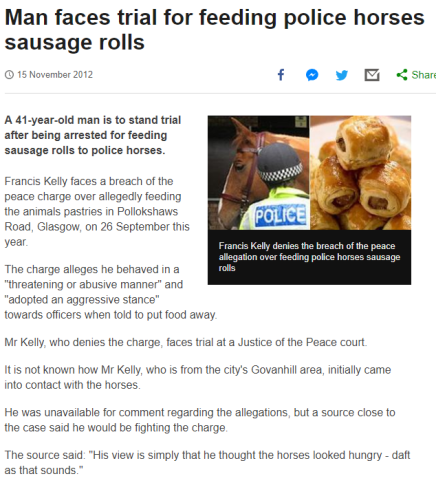Section 38 Breach Of The Peace

C when in a gathering refuse to obey a reasonable request or order by a peace officer fireman or other public official.
Section 38 breach of the peace. A breach of the peace was a common law offense but is presently governed by statute in many states. The first legislative reference to the common law breach of the peace was under the justice of the peace act 1361. Any person subject to this code who causes or participates in any riot or breach of the peace shall be punished as a court martial may direct.
As a result charges of breach of the peace are now much rarer than they used to be given the overlap between the two offences. Examples include using abusive or obscene language in a public place resisting a lawful arrest and trespassing or damaging property when accompanied by violence. Section 38 1 of the criminal justice and licensing scotland act 2010.
Section 38 and breach of the peace. 1 to prevent an obstruction of any public road or passage. Abusive or threatening telephone calls text messages and social media posts.
An act of the scottish parliament to make provision about sentencing offenders and defaulters. Perhaps as a reaction to cases like this the scottish government created a new criminal offence. This is a major reason why it s one of scotland s most frequently charged offences.
To amend the law relating to the licensing of certain activities by local authorities. 116 riot or breach of peace. Breach of the peace powers are unusual in the fact they originate from the laws alfred the great consolidated into the common law approximately 1 000 years before the modern constable was thought up.
Although it remains competent for a prosecutor in scotland to bring a charge of breach of the peace crimes of disorderly conduct are now more commonly prosecuted under section 38 1 of the criminal justice and licensing scotland act 2010. To amend the law relating to the sale of alcohol. The types of behaviour likely to be charged under section 38 are similar to what would have been previously charged as a breach of the peace e g.
















